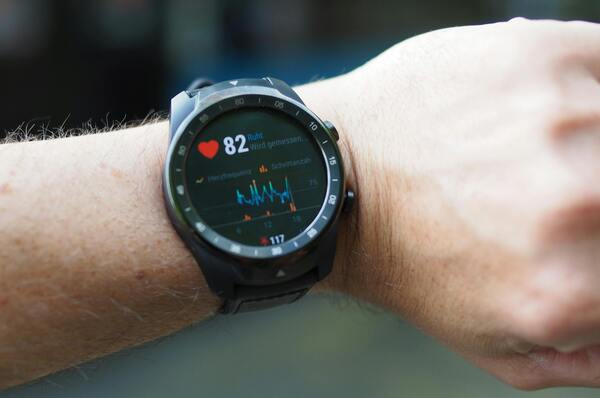Know Your Numbers: A Guide for Heart Health
Know Your Numbers: A Guide for Heart Health
If you're focused on keeping your heart healthy this February during Heart Health Month, understanding the significance of your health metrics is an excellent starting point. Five key numbers significantly impact your risk of heart disease, and being aware of these can help you maintain a healthy heart.
Blood Pressure
Blood pressure is assessed at nearly every doctor’s visit because it’s a straightforward measurement that offers insights into your health and cardiovascular condition. It comprises two figures that gauge the pressure within your arteries at different moments.
The first number, known as the systolic pressure, reflects the force your heart exerts to circulate blood throughout your body. The second number, the diastolic pressure, measures the pressure in your arteries when your heart is at rest.
Blood pressure can fluctuate throughout the day, influenced by recent activities and your emotional state. A healthy blood pressure is considered to be less than 120/80, while high blood pressure begins at 130/80 and above.1
Lipid Panel
Cholesterol is a waxy, fat-like substance present in all body cells. It plays crucial roles in overall health, yet not all cholesterol types are beneficial. Certain forms of cholesterol heighten our risk of cardiovascular disease more than others.
Recommended lipid levels for the general population include:2
- Total cholesterol: 200 mg/dL or less
- LDL cholesterol: 100 mg/dL or less
- HDL cholesterol: 60 mg/dL or higher
- Non-HDL cholesterol: 130 mg/dL or less
- Triglycerides: 150 mg/dL or less
Your ideal numbers might vary depending on your age, gender, and health status.
Inflammation
Inflammation is the body’s natural response to injury or illness, intended to facilitate healing before returning to normal levels. However, many people experience chronic high levels of inflammation, which can elevate the risk of various diseases, including heart disease.
Inflammation can be measured through markers such as C-reactive protein (CRP) and high-sensitivity CRP (hs-CRP), which tend to rise in the presence of significant inflammation. Normal values are CRP less than 0.3 mg/L and hs-CRP less than 1 mg/dL. Higher levels may suggest an increased risk of heart disease or other conditions.3
Waist circumference, discussed below, is another indicator of inflammation that can be easily measured at home.
Blood Sugar
Blood sugar, or glucose, is our bodies' primary energy source. Essential for daily functioning, its levels must be tightly controlled. Excessive or insufficient blood sugar can seriously affect our health.
Chronically high blood sugar heightens the risk of heart disease and diabetes. Health care professionals typically check two metrics to assess blood sugar: your fasting blood sugar and HbA1C, which reflects average blood sugar over the past three months. These values should be:4
- Fasting blood sugar: 100 mg/dL or less
- HbA1c: 5.7% or less
Waist Circumference
Waist circumference, measured around the abdomen at the level of the iliac crest, serves as an indicator of abdominal fat. Excessive abdominal fat is a risk factor for heart disease and metabolic syndrome.5
- For men: less than 40 inches (102 centimeters)
- For women: less than 35 inches (88 centimeters)
Lifestyle Habits to Support Healthy Heart Numbers
Even with elevated numbers, you can significantly support your heart through healthy lifestyle choices.
Diet: A balanced diet rich in fruits, vegetables, nuts, whole grains, and lean proteins can enhance blood pressure, cholesterol, and blood sugar levels. Limit your intake of sodium, saturated fats, and sugars.
Healthy weight: Maintaining an ideal weight, especially around the midsection, alleviates stress on the heart, improves insulin resistance, and promotes circulatory health. A BMI calculator can help determine your ideal body weight.
Exercise: Regular physical activity fortifies the heart and maintains healthy blood pressure. The American Heart Association suggests at least 150 minutes of moderate aerobic activity per week.
Hydration: Drinking sufficient fluids throughout the day is essential for healthy blood circulation.
Manage stress: Although high stress can increase blood pressure and disrupt sleep, thus impairing cardiovascular health, practices like meditation can foster a healthy response to stress.
Sleep: Aim for 7-8 hours of quality sleep nightly to support overall heart health and hormone regulation.
Quit smoking: Ceasing smoking reduces cardiovascular damage and enhances overall heart health.
Mastering Your Numbers for a Stronger Heart
Understanding your crucial heart health numbers forms the foundation for maintaining a healthy heart and reducing your risk factors. Regular monitoring of blood pressure, cholesterol, inflammation markers, blood sugar, and waist circumference enables proactive health management.
Always consult with your healthcare provider to understand your risk levels and ensure that your health metrics are properly monitored for optimal heart health.
Take care of yourself.
BubbForest
*These statements have not been evaluated by the Food and Drug Administration. These products are not intended to diagnose, treat, cure, or prevent any disease.
About Michelle Routhenstein, MS, RD, CDCES, CDN
Michelle Routhenstein owns Entirely Nourished, a private practice specializing in the prevention and management of heart disease. As a registered dietitian nutritionist, she adopts a science-based, personalized approach to enhance heart function, reduce cardiometabolic risks, and prevent cardiovascular complications. Recognized as a leading expert in heart disease management, Michelle shares her knowledge on social media, empowering individuals to proactively manage their heart health. She earned both her Bachelor's and Master's degrees in Clinical Nutrition from NYU and has substantial clinical experience, including at a level 1 trauma center in NYC.
Sources:
- AHA: 130/80 mm Hg Is New National BP Target. MedpageToday. Read source.
- Cholesterol Levels: What You Need to Know. Blood, Heart and Circulation. Read source.
- C-reactive protein. Medline Plus. Read source.
- Diabetes Tests & Diagnosis. National Institute of Diabetes and Digestive and Kidney Diseases. Read source.
- Assessing Your Weight and Health Risk. National Heart, Lung and Blood Institute. Read source.
- Resveratrol and cardiovascular diseases. Nutrients. Read source.
- Nattokinase: A Promising Alternative in Prevention and Treatment of Cardiovascular Diseases. Biomark Insights. Read source.
- Clinical application of bergamot (Citrus bergamia) for reducing high cholesterol and cardiovascular disease markers. Integr Food Nutr Metab. Read source.
- Therapeutic potential and mechanisms of berberine in cardiovascular disease. Curr Pharmacol Rep. Read source.





Leave a comment